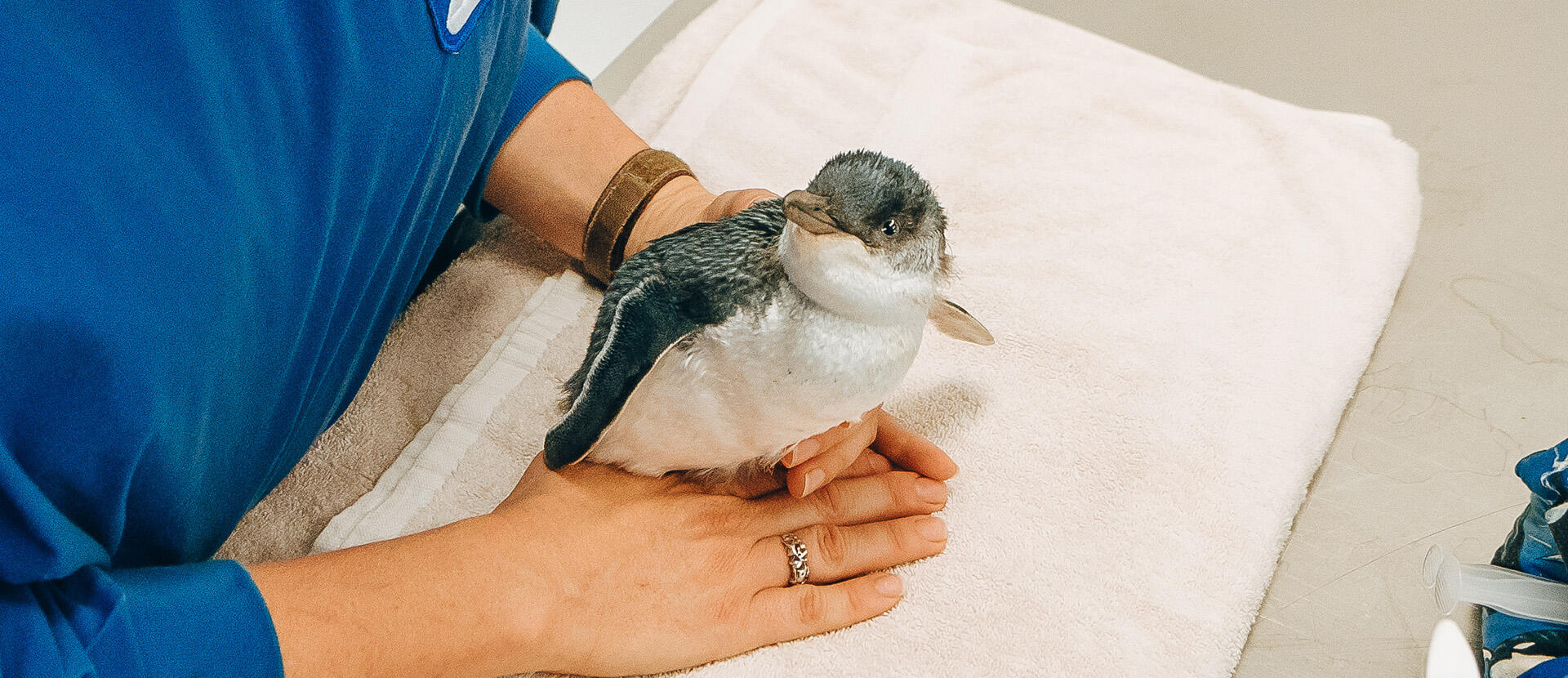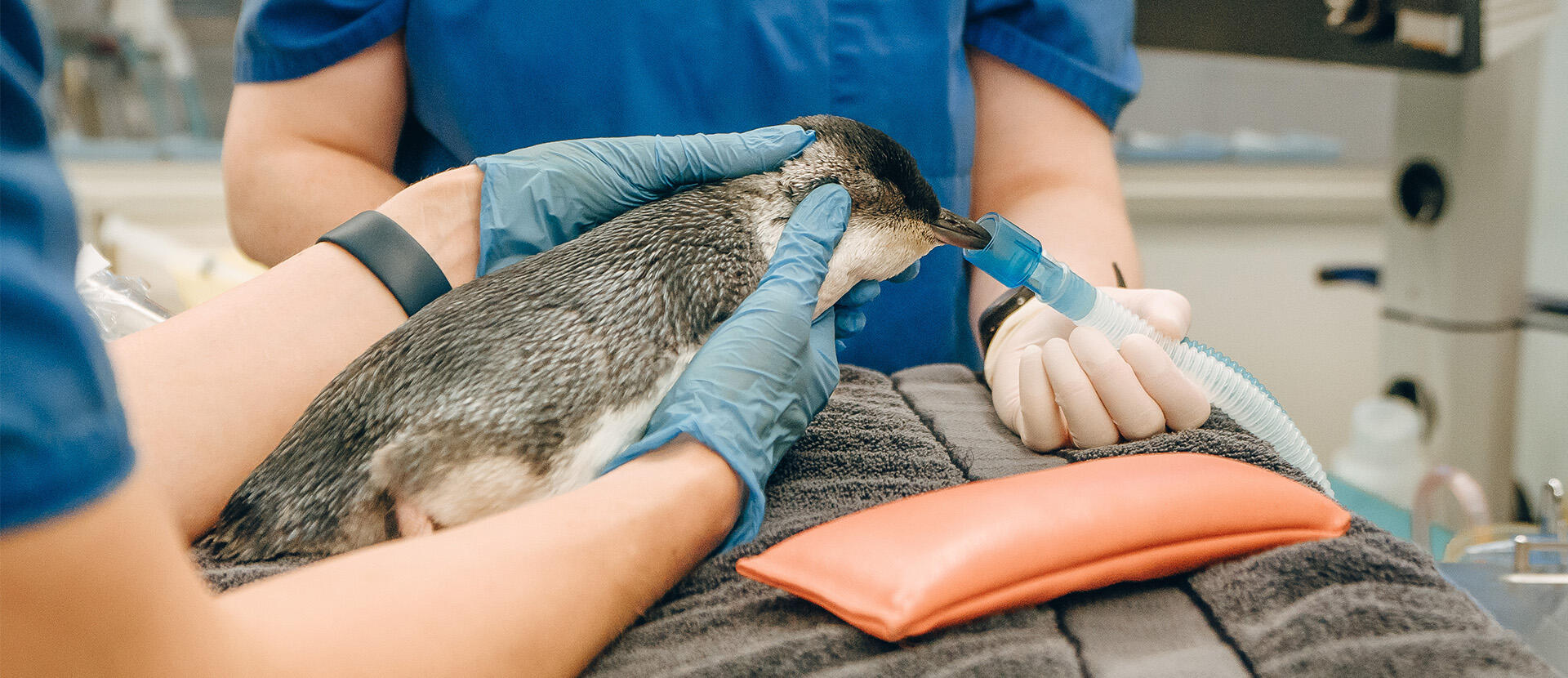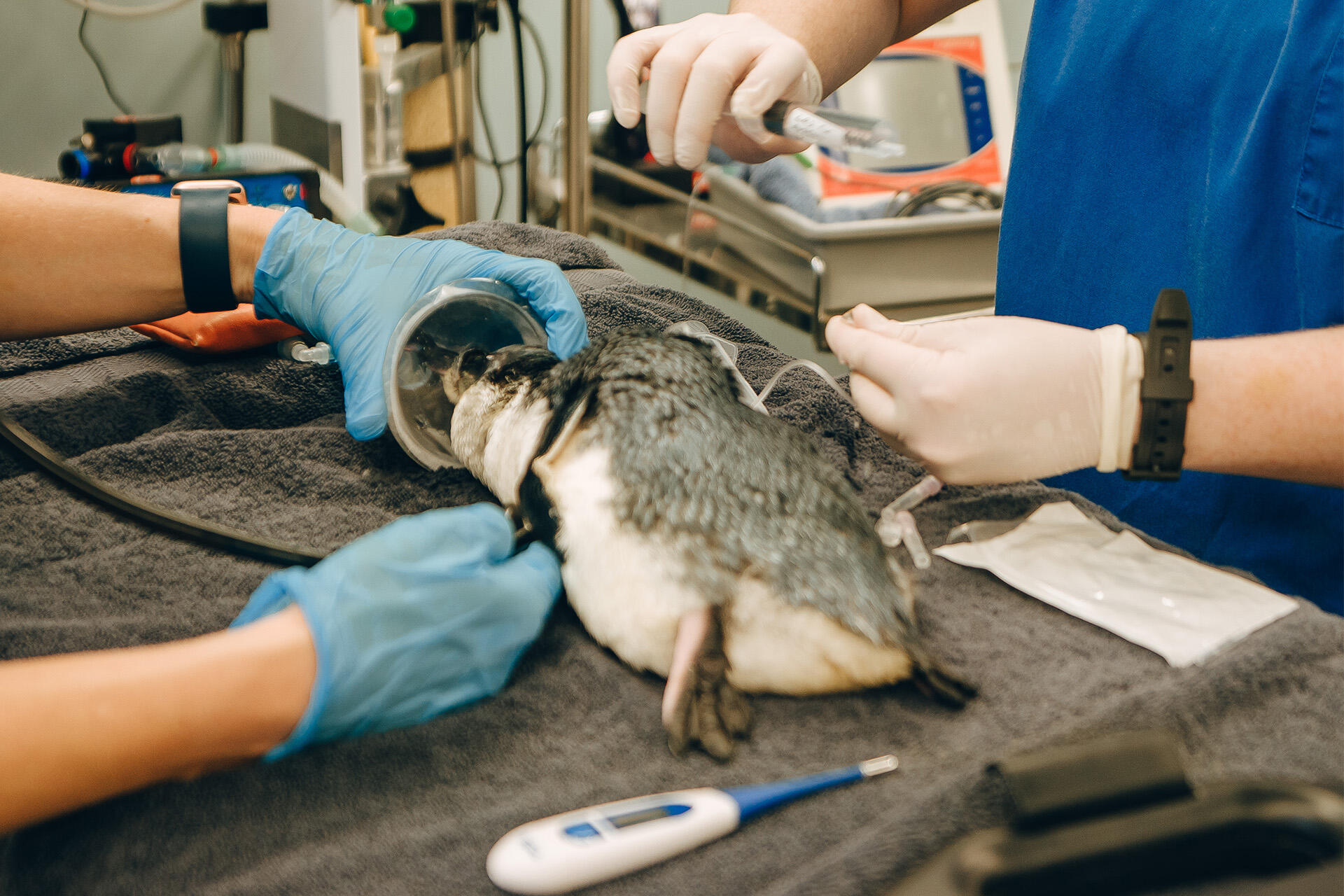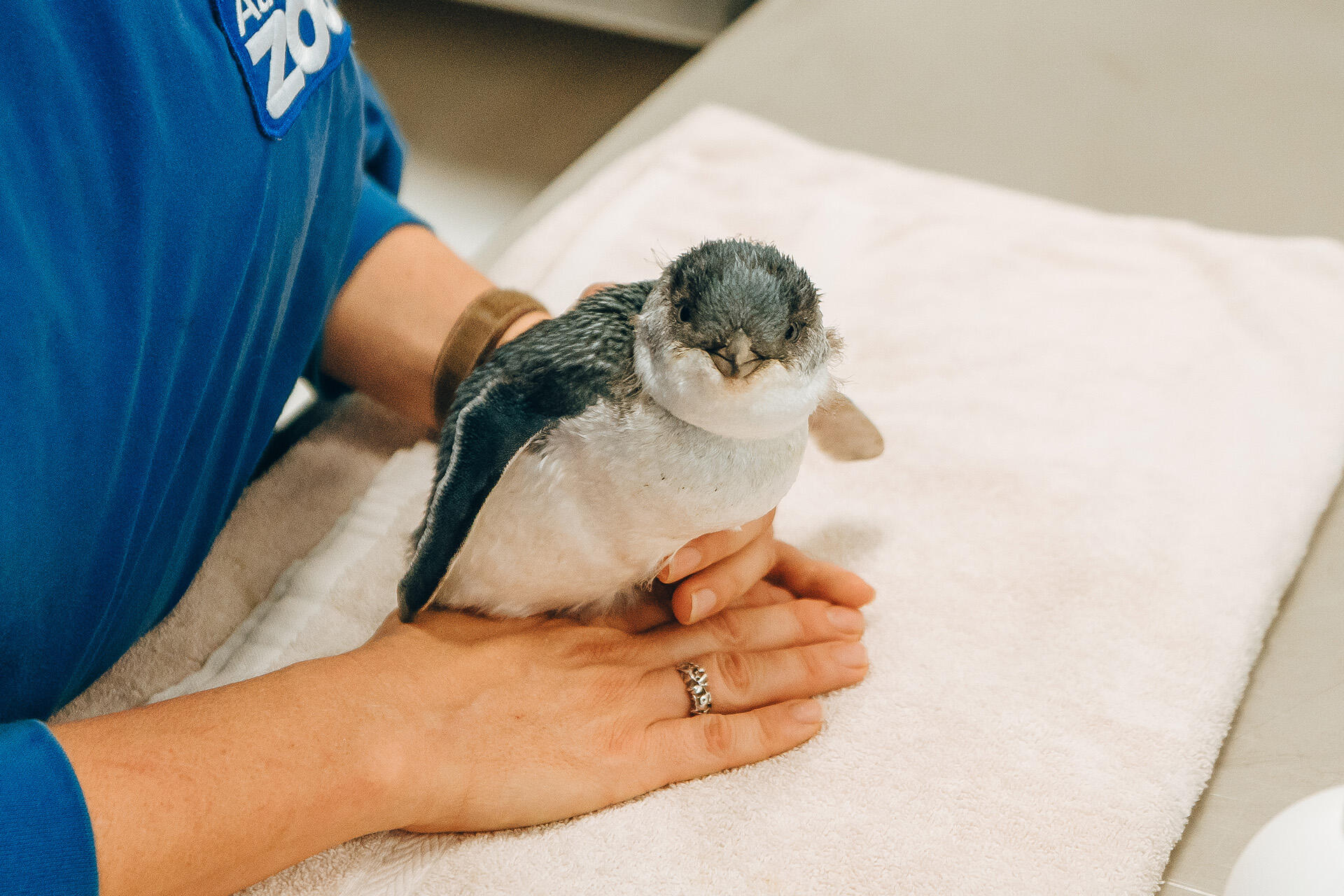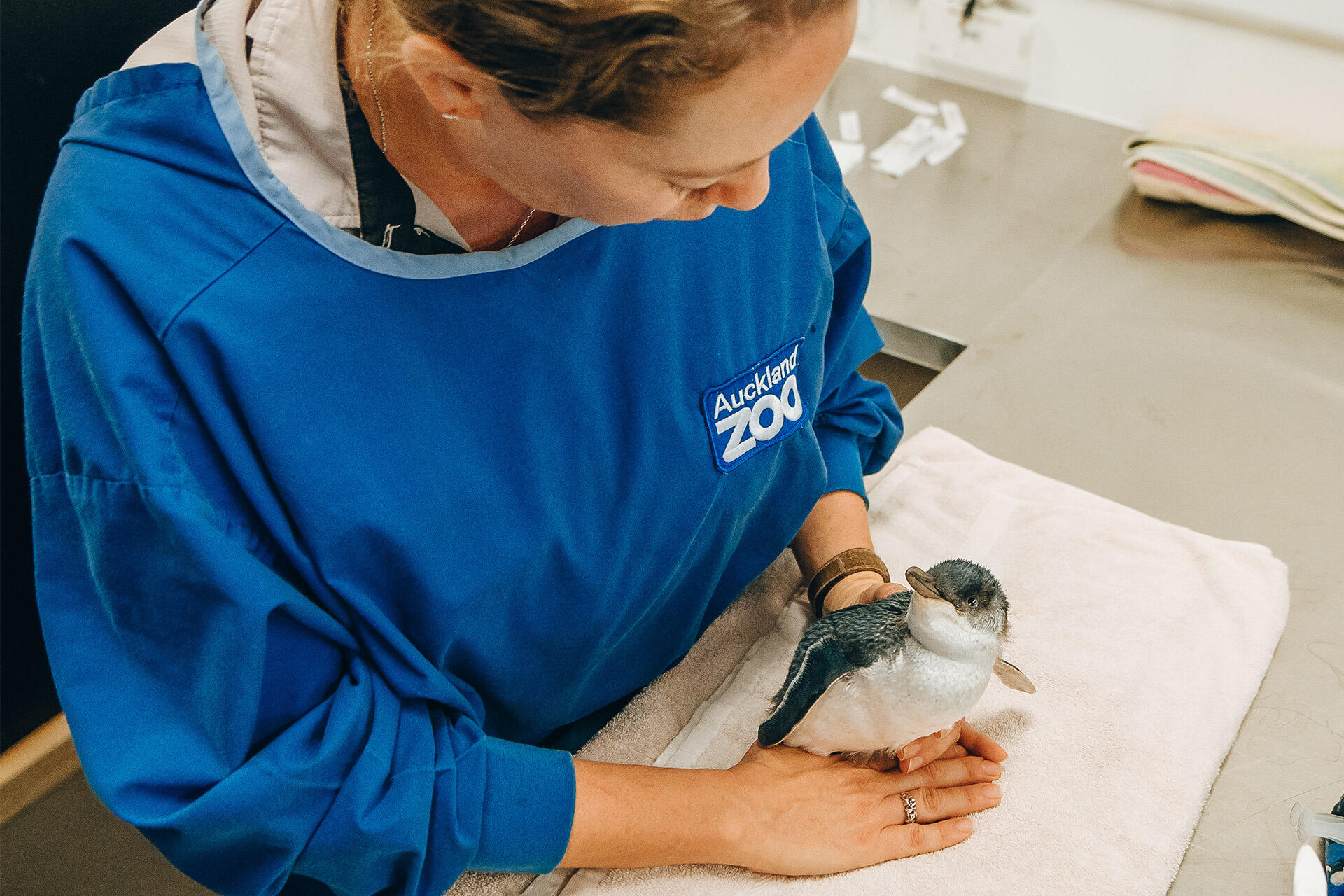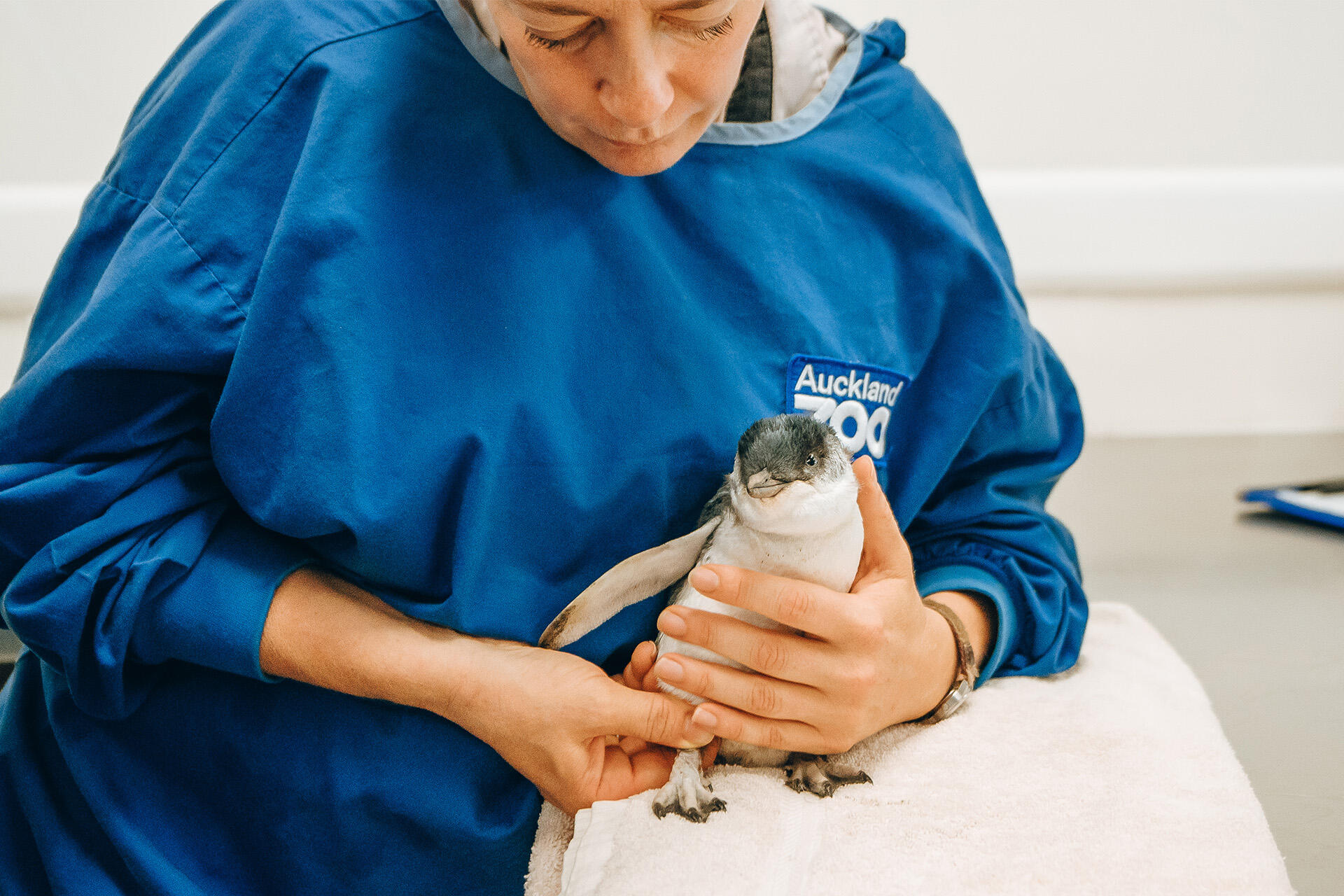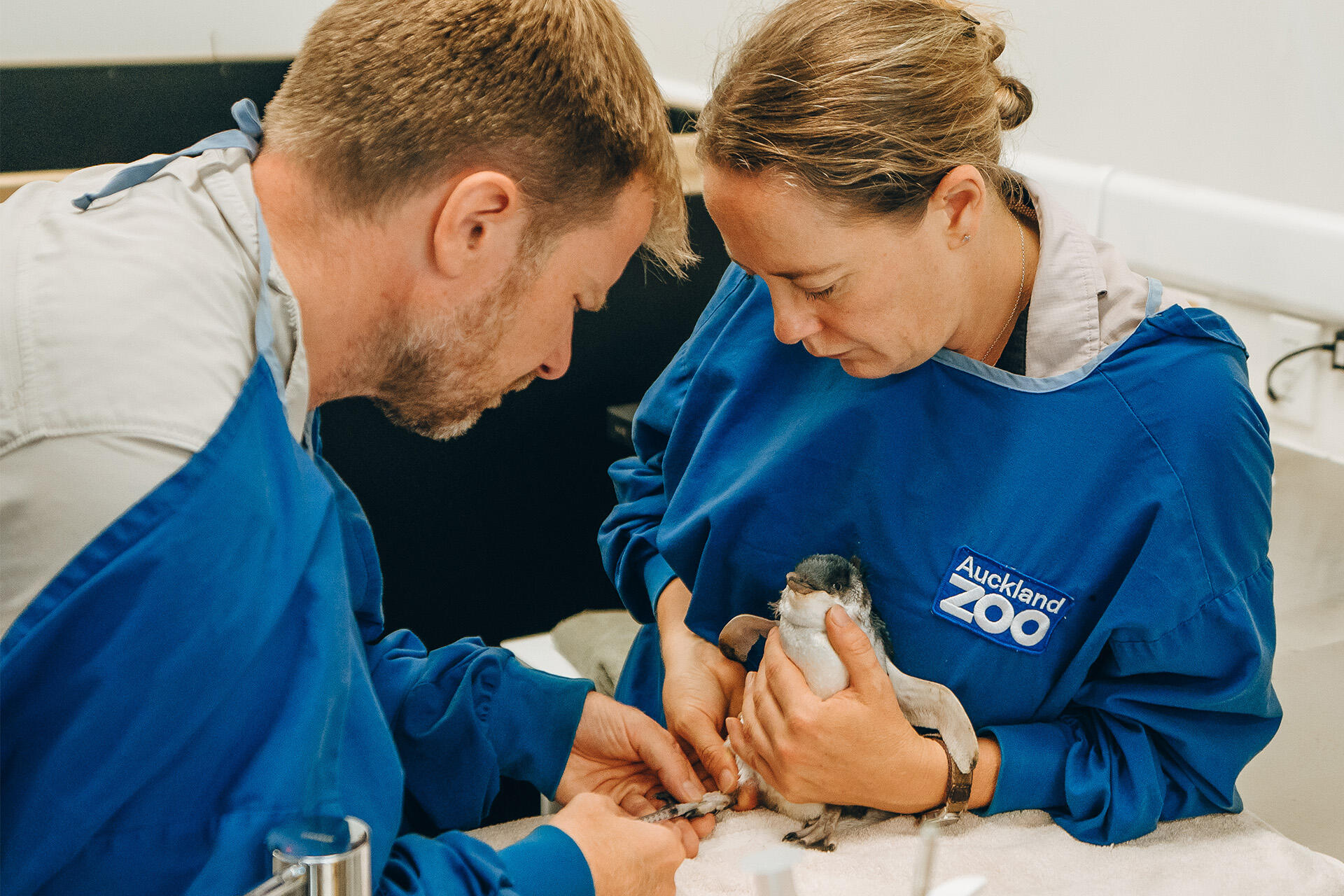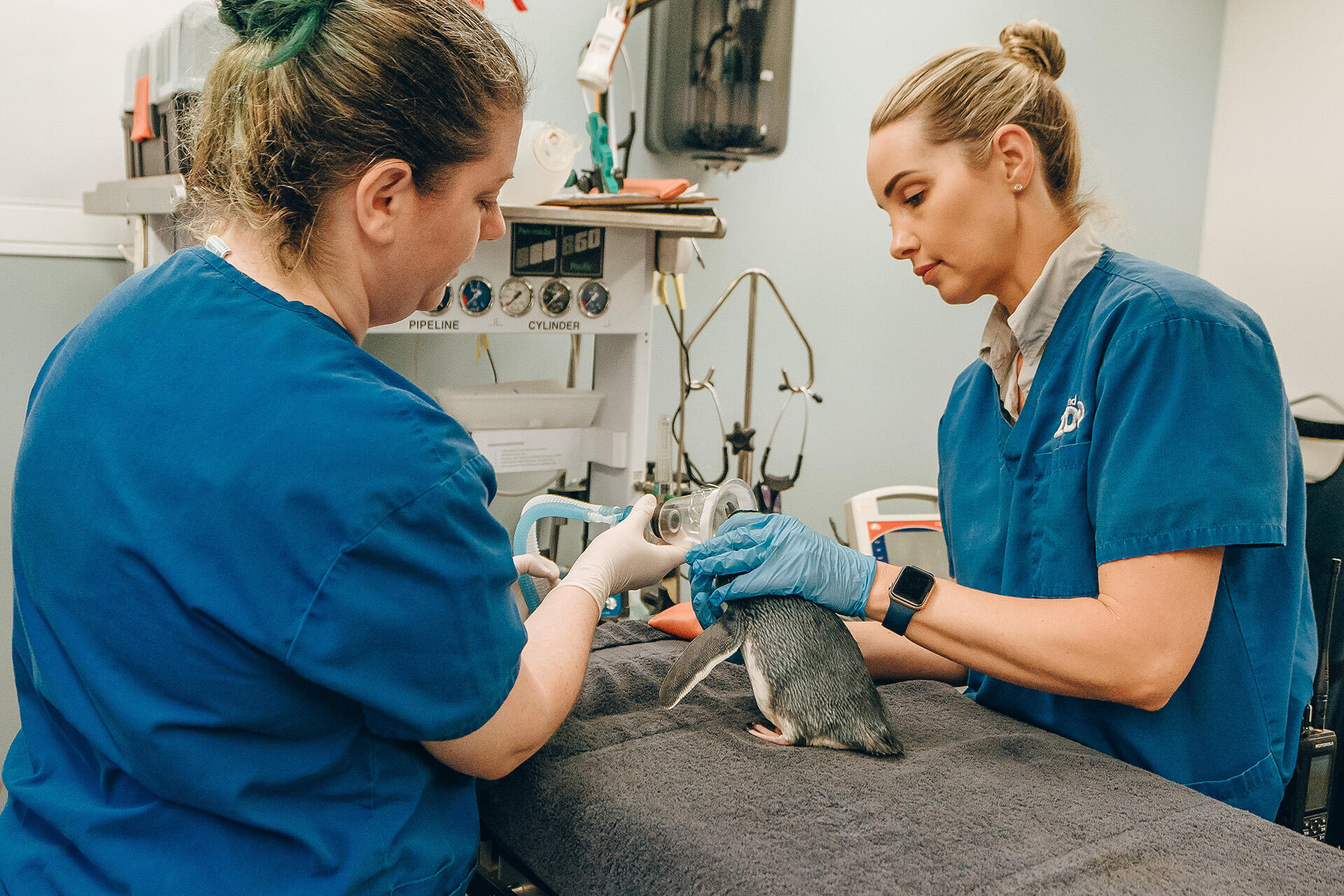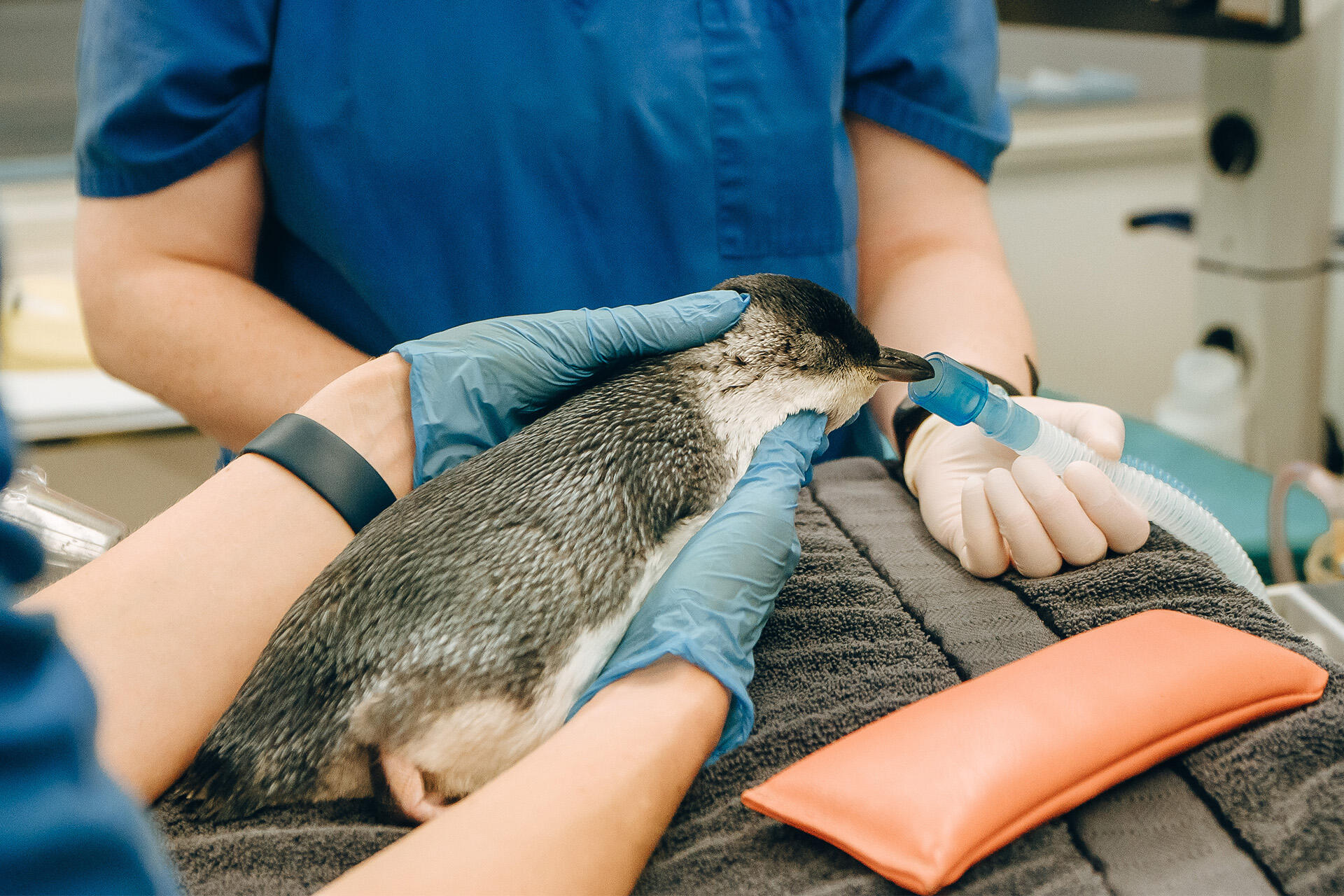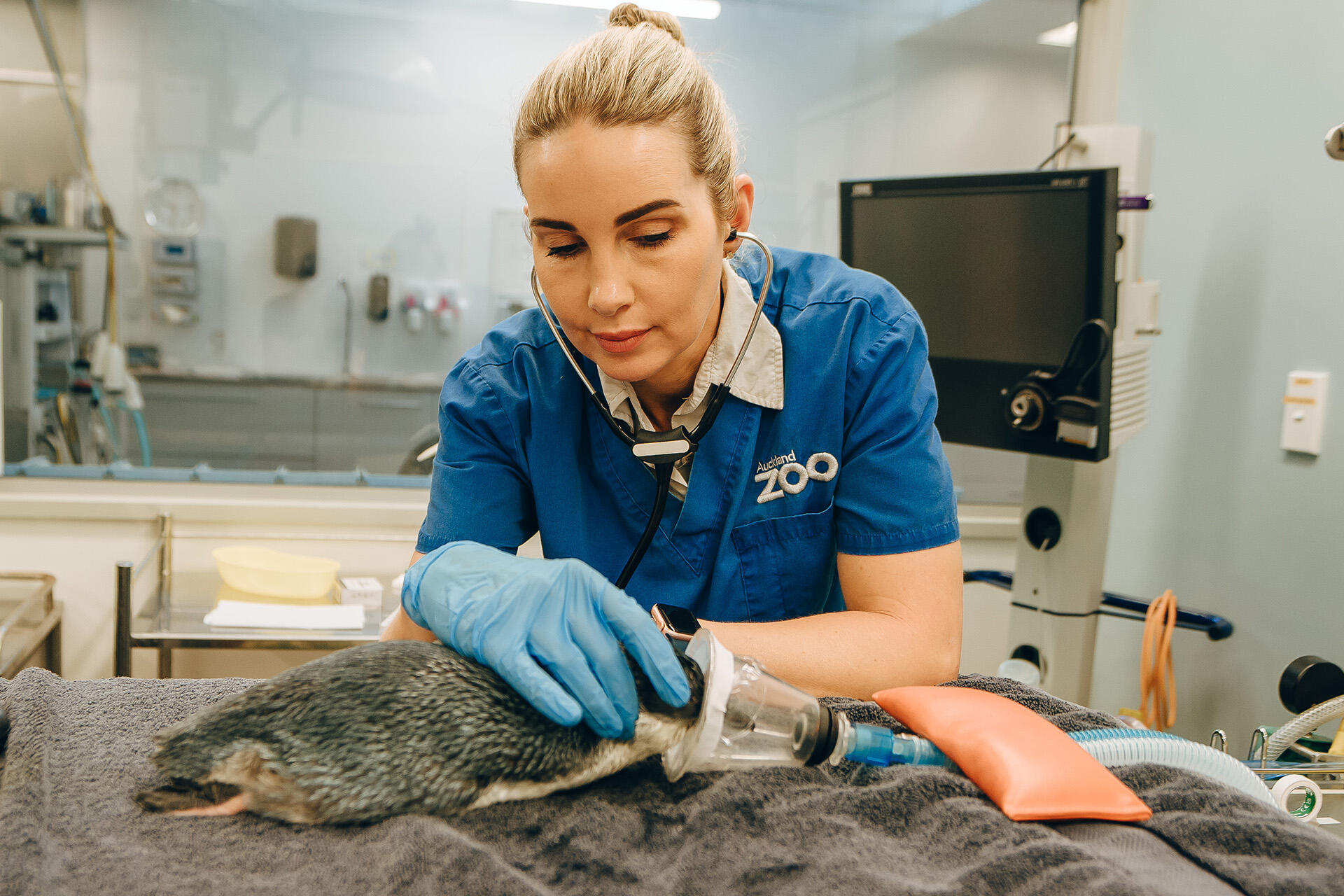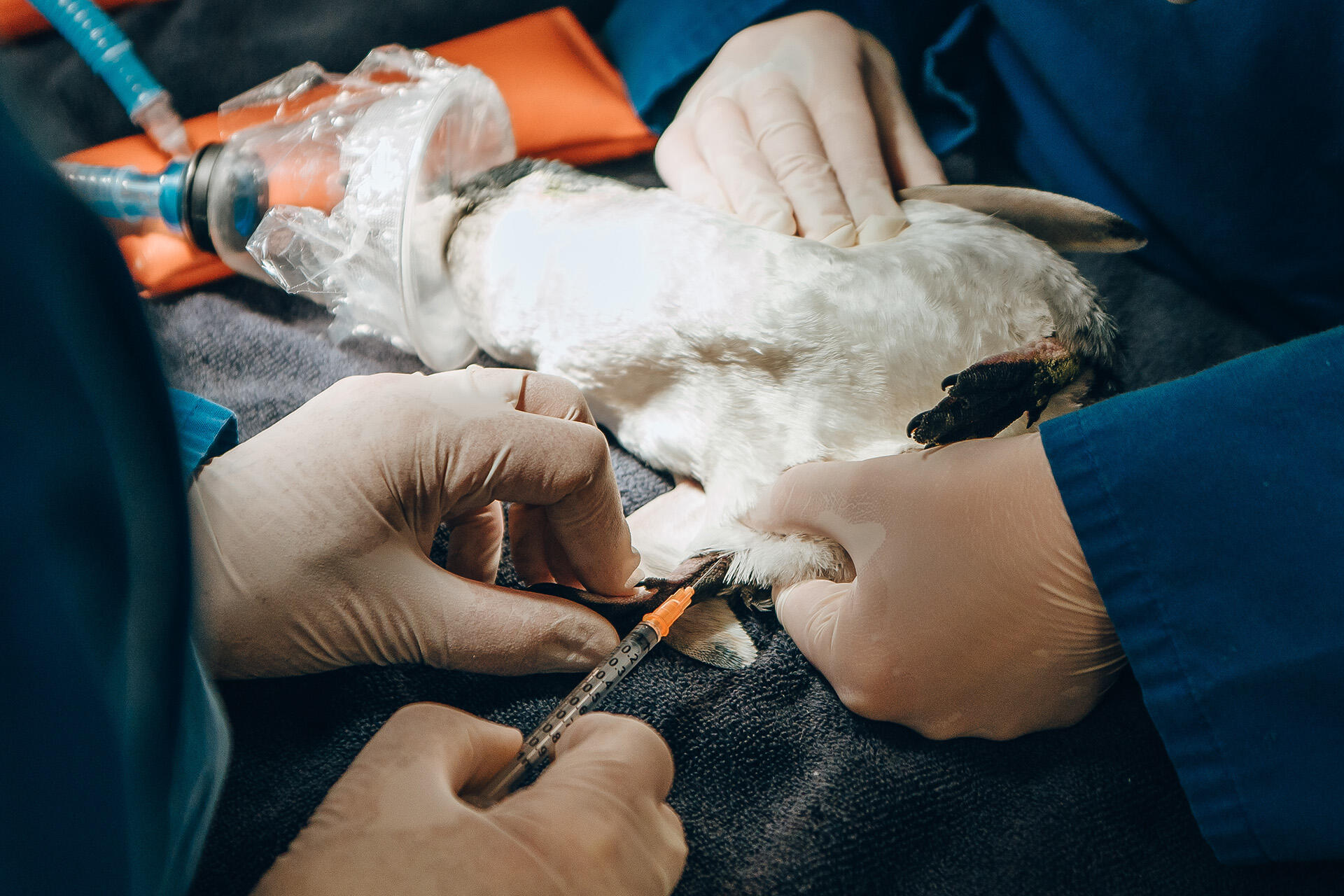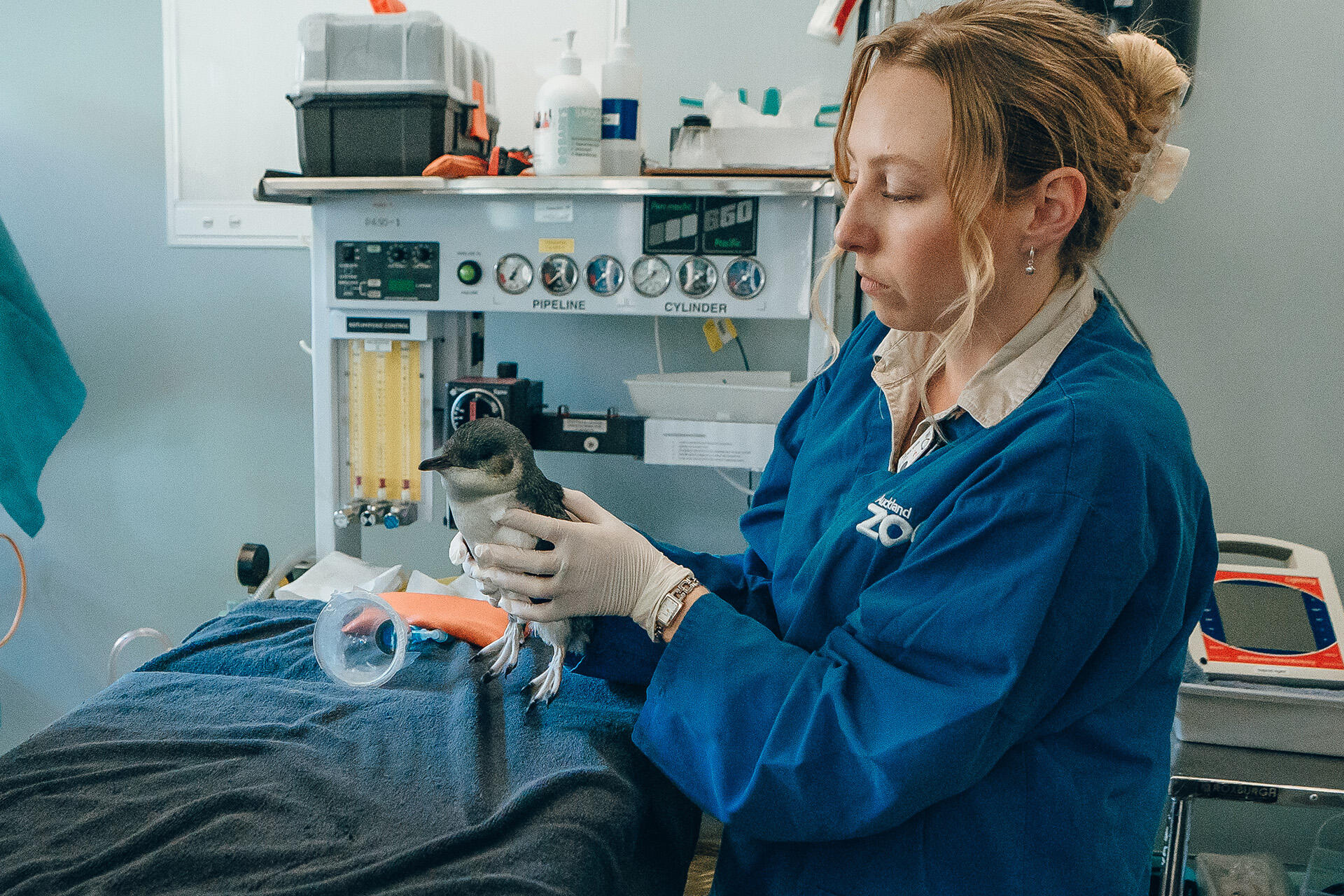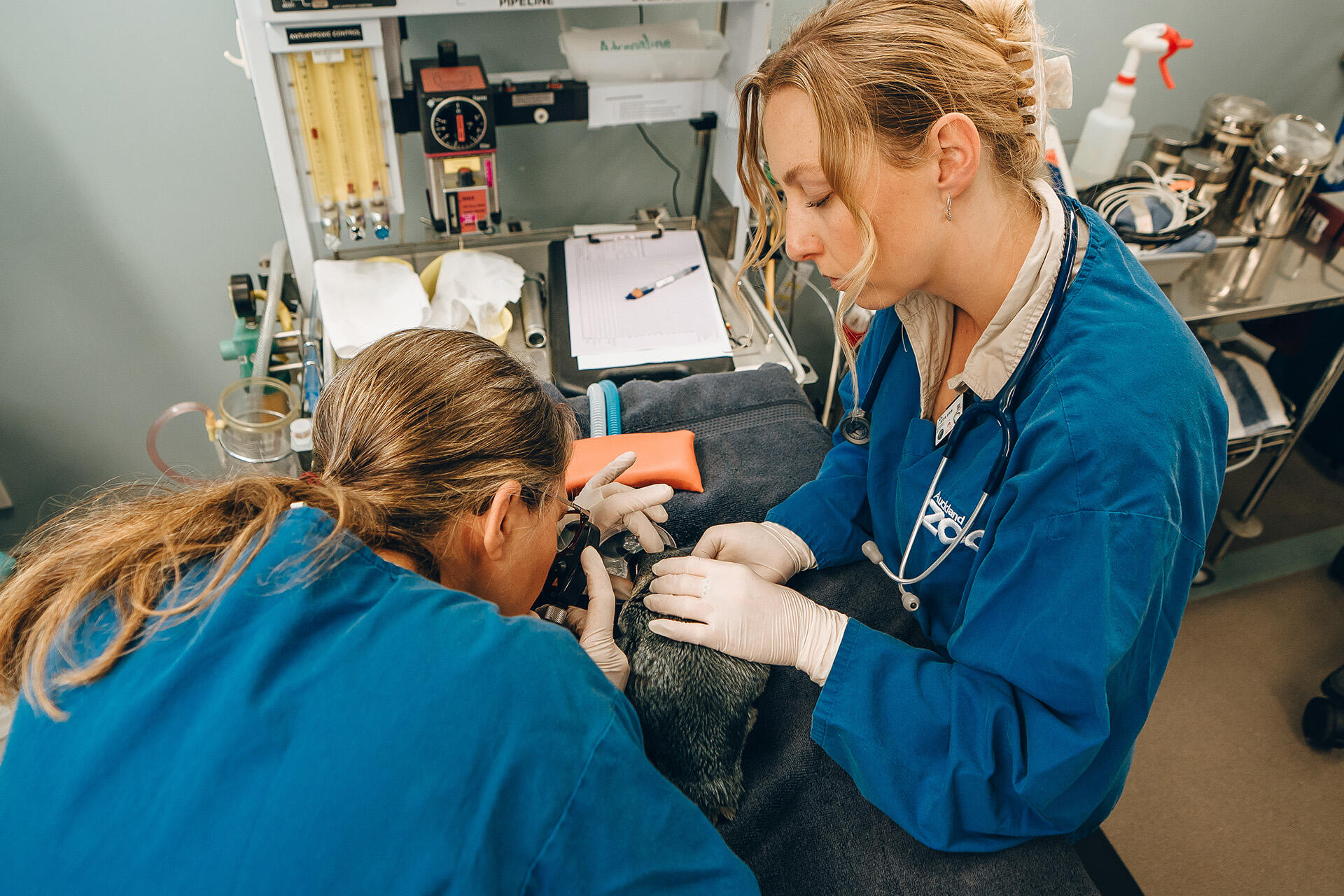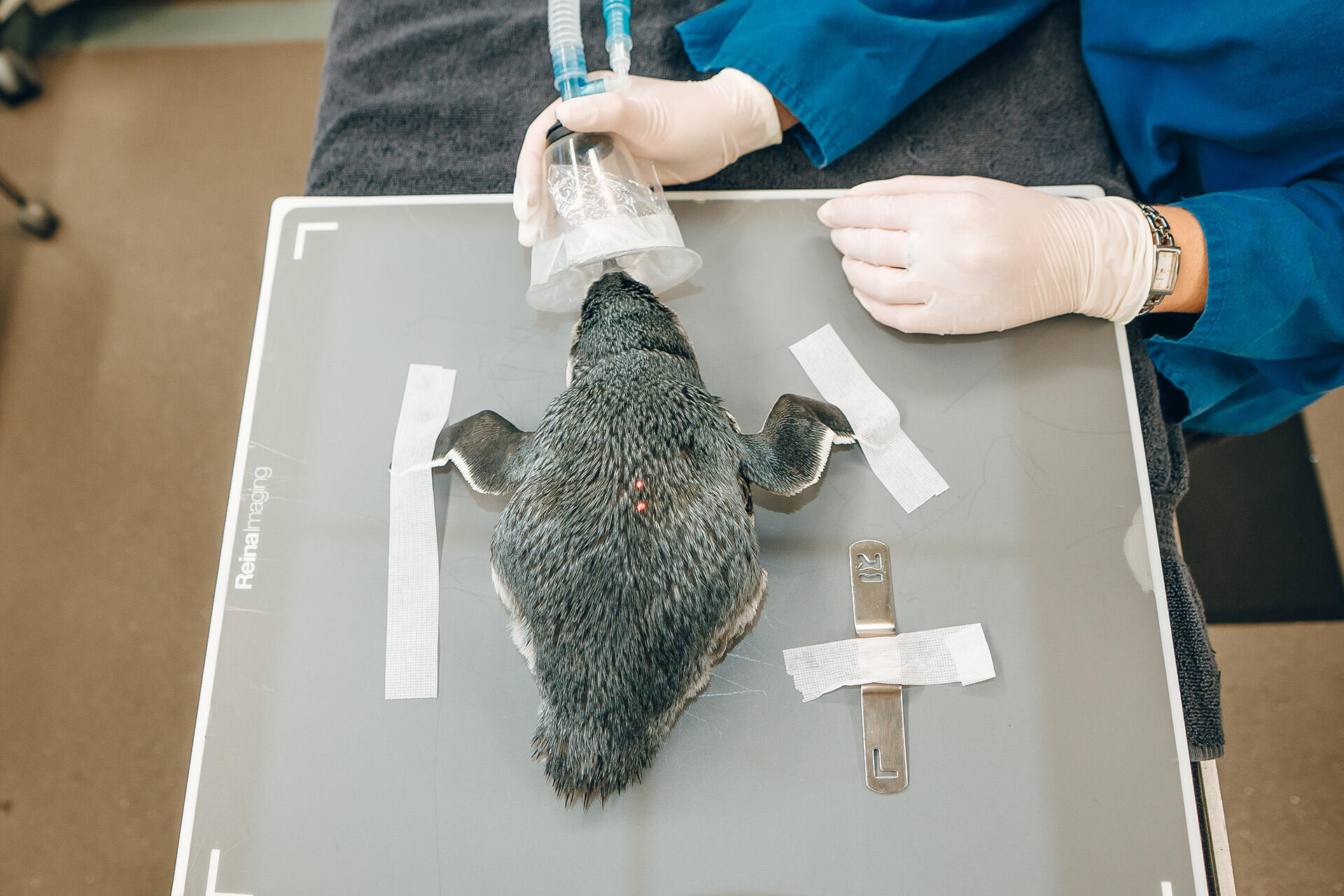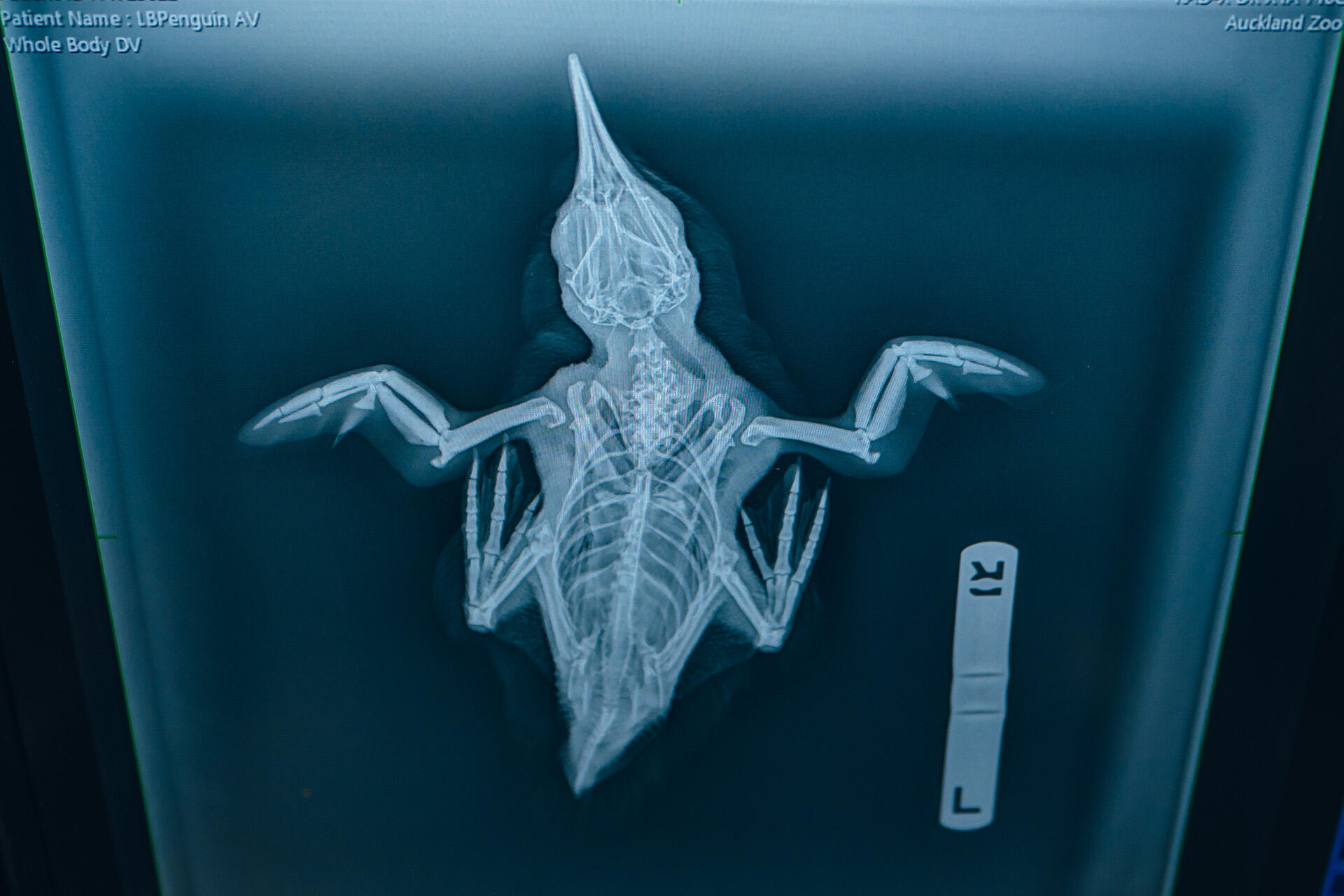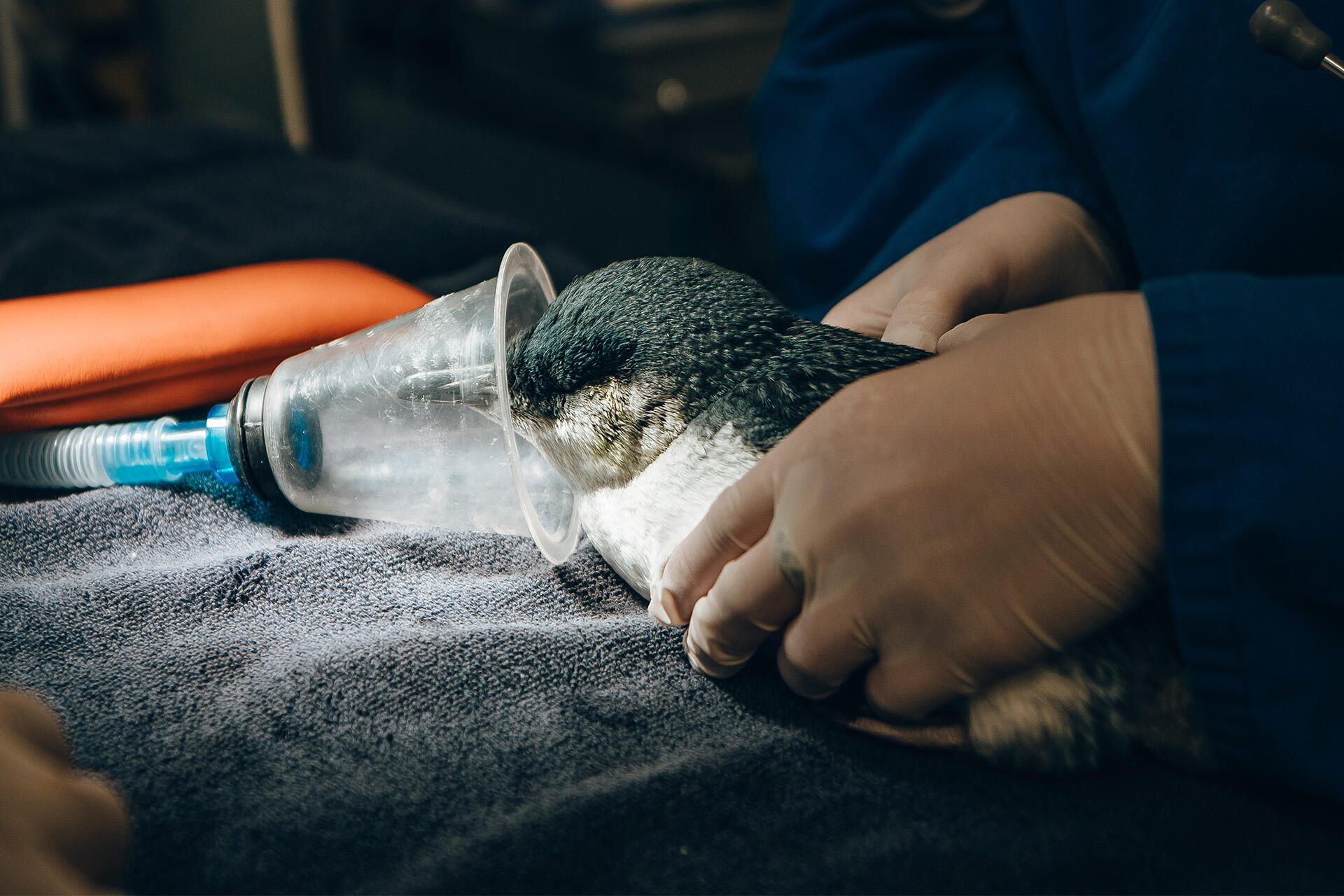In just 32 days, 16 wild kororā were admitted to our vet hospital.
Every kororā (little penguin) patient that arrived had different veterinary needs. Some were found sick or injured by members of the public, others were rescued by the Department of Conservation (DOC), and some were transferred to us from bird rescues.
Many have sustained fractures or severe trauma to their flippers, leaving them unable to swim and causing them to become stranded. Other kororā have presented with injuries, including one individual requiring treatment for a damaged eye. A significant number of young chicks have arrived emaciated and malnourished, all in urgent need of veterinary care.
Once they arrive and after they are stabilised, each penguin undergoes a thorough health assessment. This includes a physical examination and x-rays to check for internal injuries. Sadly, the majority of these manu were in such critical condition that euthanasia is the most humane option to prevent further suffering.
Of the surviving penguins currently in care, many have been deemed non-releasable due to the severity of their injuries. This includes penguins that have sustained flipper damage, requiring surgery to remove exposed bone fragments, while others have suffered injuries that reduce their ability to hunt effectively in the wild.


